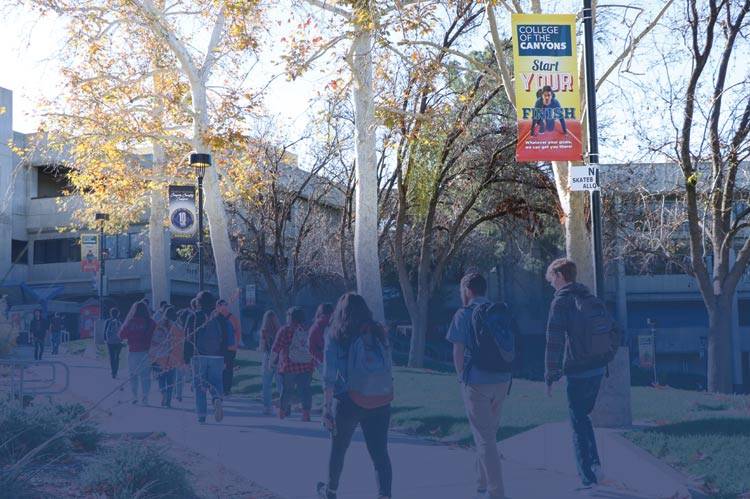Transfer FAQ's
1. Do you need an Associate Degree transfer?
Answer: No, you just need to meet the admission eligibility requirements of the university to which you are transferring. However, there are two Associate degree patterns that are designed to make it easy to get the Associate degree and meet the university eligibility requirements at the same time. Consult with a counselor about using CSU General Educationor IGETC as a major for your Associate degree.
2. Are the freshman and sophomore courses that students take at College of the Canyons
the same as those at the four-year universities?
Answer: Yes. Most students complete their general education courses during their first two years. College of the Canyons has articulated general education course patterns that are considered equivalent to those at California State Universities and the University of California.
3. Are there advantages to starting your college career at a community college like
College of the Canyons rather than the four year school?
Answer: Yes, there are several important advantages. The community colleges are much less expensive, more conveniently located, and often have smaller classes at the freshman and sophomore levels than the four-year schools. Also, it is often easier to get into the college of your choice at the junior level than it is to get in at the freshman level directly out of high school. Finally, community college teachers only task is to teach they are not required to write articles or books or do research and consequently they have more time for students.
4. Are College of the Canyons transfer students as successful at the university as
students who started the university as freshman?
Answer: Yes, our transfer students, on average, do as well as and in some cases better than, students who started as freshmen at the four-year schools.
5. How can I improve my chances for being accepted to the university of my choice?
Answer: It is important to be as academically well prepared as possible. Work with a counselor to develop a student educational plan that will include completion of your lower division general education and major preparation. At universities where the admissions process is more competitive, having a strong grade point average is also important. In addition, some universities are looking for students who can not only excel academically but who are also involved in campus or community activities.
6. How do I select a transfer campus?
Answer: The Transfer Center offers access to a variety of resources that enable you
to make informed decisions about which transfer school is right for you. There are
number of considerations when selecting a transfer school, e.g. location, major offered/not
offered, size of student body, availability of classes, cost, etc. Throughout the
year, representatives from four-year colleges and universities visit the COC campus,
offering an opportunity for you to seek answers to your questions. In some cases you
may make an individual appointment to see a university representative at COC. In addition,
each year the Transfer Center sponsors a Transfer Day that brings over sixty college
and university representatives together on the COC campus at one time. It is important
to meet with the university representatives when they are on the COC campus but it
is recommended that you also visit the college and university campuses you are considering
for transfer. The Transfer Center can assist you with obtaining information on individual
campus open houses and special opportunities for potential transfer students.

